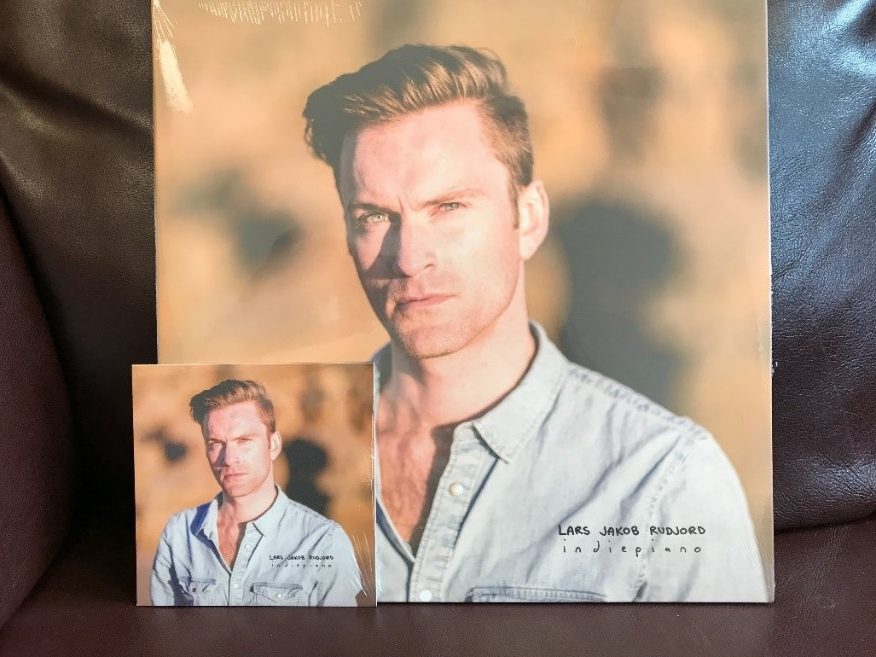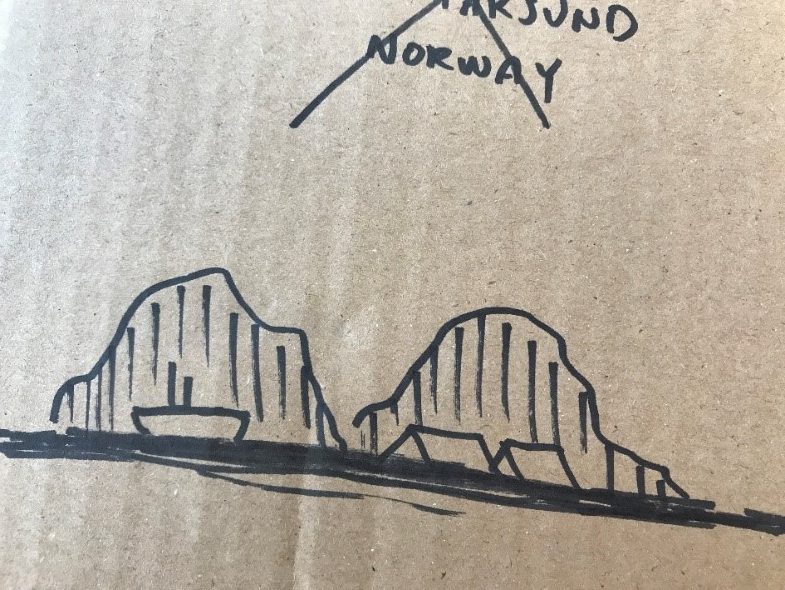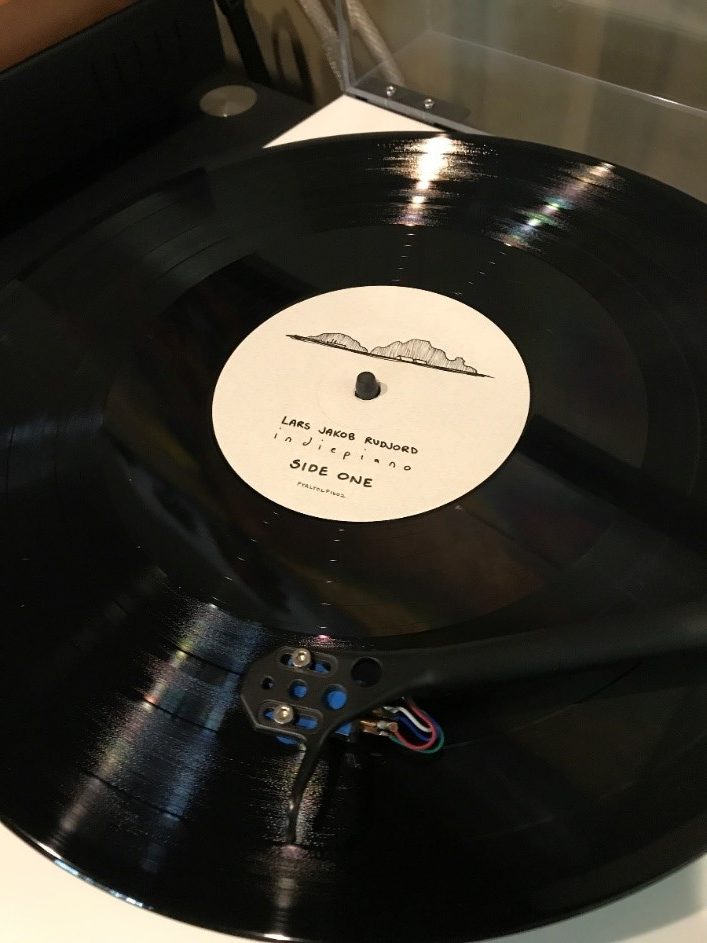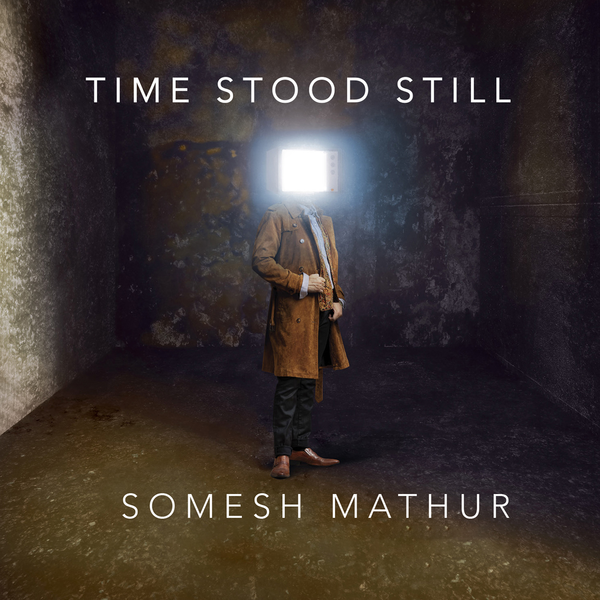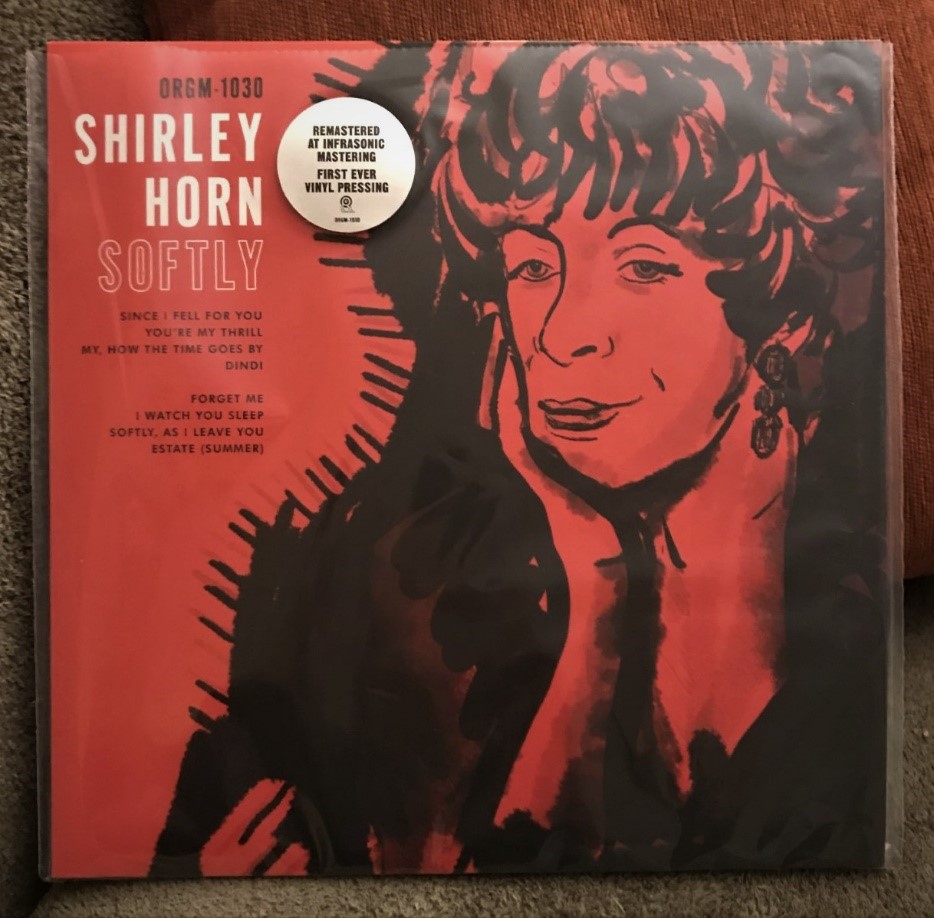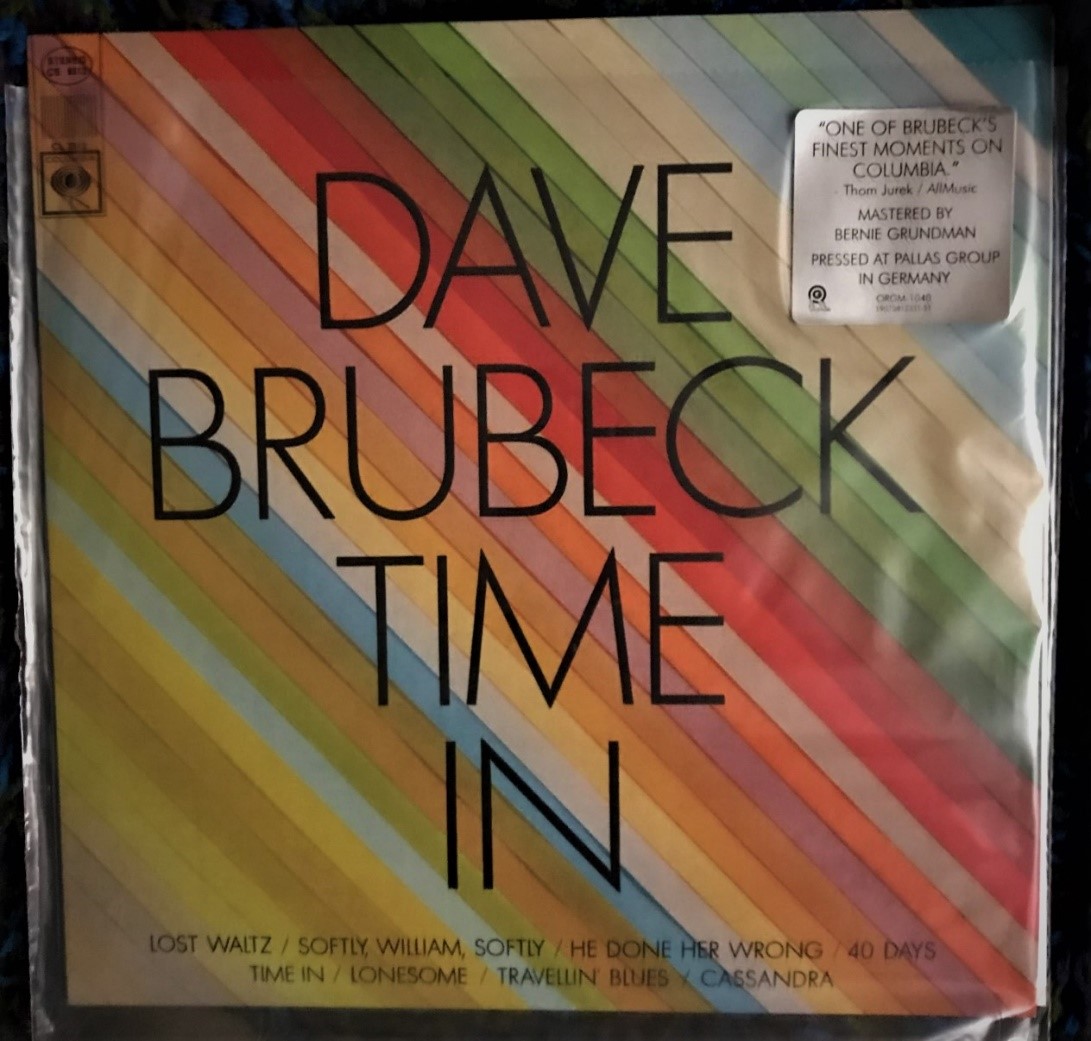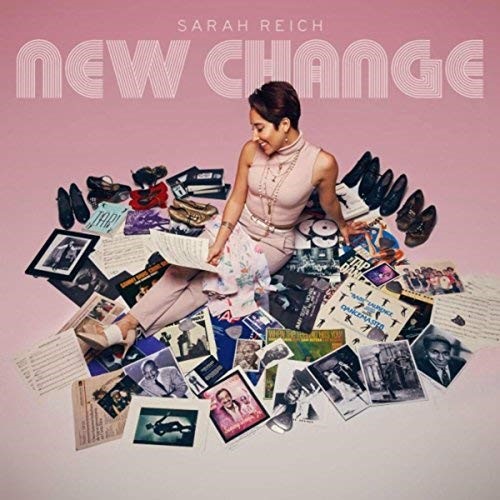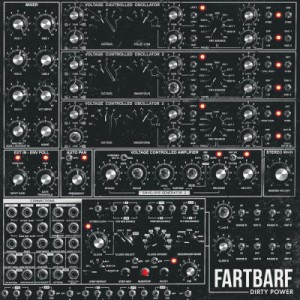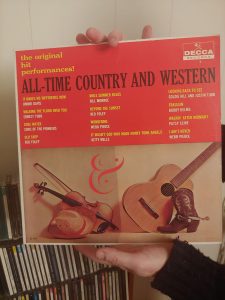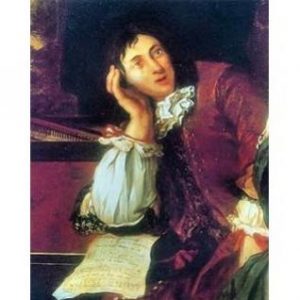Fyrlyd Records FYRLYDLP1602, available at http://fyrlyd.no/ for 389 NOK
"I'm a huge fan of those guys."
Music reviewers aren't supposed to admit to such things. We're supposed to be objective in our approach to something that's almost perfectly subjective. We're supposed to accurately describe the release, offer some sort of reference for the reader that makes sense ("It's like Pet Sounds performed by My Life in the Thrill Kill Kult.") and deliver just enough words to sound either vaguely approving or cautiously disapproving. In other words, we're not supposed to say "Just buy it! Trust me on this! It will change your life!" I've seen those type of reviews—they're either bought and paid for, or they're written by a crazy person. They help no one.
But if you read my review of Ingvild Koksvik's Og sangen kom fra havet, which appeared here about a year ago, you'll know I have a thing for both her and her now-husband, keyboardist and composer Lars Jakob Rudjord. This Norwegian power couple makes music that connects deeply to my brain's ability to conjure up incredible images and feelings. It doesn't matter that Ingvild sings in Norwegian or that Lars' compositions are strongly grounded in Scandinavian traditions and aural landscapes—I just feel like they're both talking to me and telling me things that I need to hear. It's mesmerizing, and most of us want to be mesmerized by our favorite music.
I've been praising these two for the last few years, ever since fellow audio scribe Trond Torgnesskar sent me a copy of Ingvild's Nattapent on LP. I wrote, "I don't know what Ingvild is singing about in these truly beautiful songs, but I can detect the feeling and emotion in every word and I can selfishly come up with my own narrative, and that's really all I need." After that review, Ingvild emailed me and thanked me and asked if I would like to hear a CD from her boyfriend Lars. I said sure and a few days later I received Clockwork from the Lars Jakob Rudjord Ensemble. I wrote, "I'll tell you what—I'm probably going to bring this CD with me to every trade show I attend. It's just that great of a demo disc, with amazing sonics and intriguing music."
At the end of the year I chose Lars' CD as my favorite of the year, and Ingvild's came in a close second. She earned extra credit for releasing Nattapent on vinyl, but Lars' music really crept deep into my soul and still remains there to this day. As I mentioned in my review, there's something about Lars' music that sounds familiar to me and makes me wish I had musical talent so that I could have come up with these ideas before he did.
Then Ingvild came up with Og sangen kom fra havet, and I chose it as my favorite release of the year, even though it was still relatively early in 2016. I offered the caveat that Lars might try to steal her thunder again if he had something waiting in the wings. Ingvild actually replied that he was working on something, but that it wouldn't come out until 2017. A few weeks ago, Ingvild messaged me to say that Lars' new album Indiepiano had been released in Norway and was starting distribution throughout the rest of Europe and hopefully soon in the US. So I might have the first copy of this in the states, but you can buy it from the Fyrlyd Records website as long as you can convert US dollars to Swedish krona.
Ingvild sent me both the LP and the CD. (Note how the drawing on the back of her shipping carton matches the drawing on the label, a personal touch that makes me smile.) The former has been sitting on my turntable for the last couple of weeks, and the latter has been keeping me company while I commute between Syracuse and Rochester. As a result, this gorgeous and wintry piano music has once again burrowed deep into my thoughts and emotions for almost inexplicable reasons. I hear it in my sleep. I wake up thinking about specific melodies. These eight pieces, barely more than a half an hour in total length, are simple and intimate tone poems that are vaguely interconnected with musical themes that invite comparisons to the body of a movie soundtrack. Over the last few days I've been thinking about that non-existent film, and what it would be about.
"It's very quiet and peaceful and full of beauty," I wrote to Ingvild when I informed her I had received the album and that I loved it after the first listen. I almost threw in a lame comment about Indiepiano's more optimistic and accessible feel, especially in comparison to the darker undercurrents of Clockwork, and how that might be related somehow to the two of them getting married last year. I quickly imagined all of the ways that question would backfire, so I kept it inside. But that's my first impression listening to this new album, that's it's written by someone who has found happiness and love and has matured from the exposure.
If you concentrate solely on the tranquil surfaces of this recording, which is all too easily accomplished while listening capriciously in the car, you'll hear eight piano pieces that sound appropriately moody and crackling with Scandinavian ice patterns despite those lush and instantly engaging melodies. There's a minimalism at work here, reminiscent of the '80s, where Lars keeps the main piano melodies slow and deliberate and pleasingly repetitive. It's the quiet textures that he subsequently adds that really dig out the contrasts, whether it's a string section imbued with the same rustic sensibilities as Carter Burwell's soundtrack for Fargo (in both "Spring" and "Frost") or a subtle layer of crisp, slight synthesizers and distorted percussion (in "Marna"). If you're craving Ingvild's ethereal voice—these two usually help out on each other's releases—you'll get that as well, even though it's a very small helping. Her sole appearance, an eerie vocal backdrop in "Big Sky," required a second and third listen before I realized it was her providing that haunting call and not a synthesizer. There she is, I thought, sounding like no one else on earth.
Once you get a handle on all those textures and how they add to the whole, it's time to circle back and focus on Lars' keyboard and discover the quiet and thoughtful cores of these compositions. "Spring," the first song, starts off with a repetitive riff. Listen closely—again, not in the car with all that ambient noise—and you'll hear the sound of the hammers striking the soundboard of the piano with almost the same dynamic impact as the note itself. That's when Lars' intentions become clear—he has always been faithful to the idea of a piano's mechanics and how they work, and these natural sounds are what the performer hears. The audience hears a distillation of that, the notes and how they carry, phantom-like, through the recording venue. The pianist hears—and feels—something else. Pedals creaking. Sound moving horizontally as it bounces off the soundboard. Breathing. There were times I thought I heard the impossible sound of fingers touching keys. These are unfathomable details that can't be brought to life while listening casually.
Then again, I'm a fan. That means I'm willing, from the beginning, to dig deeper and find all those details and rearrange them in my head until the connections are made. This is a recording where repeated listens are necessary, where extra care can transform this music from something pretty and like-able and perhaps a little too close to the stuff that Windham Hill was putting out in the '80s to a frontier that needs exploration to clarify the mysteries of those little details. Park yourself in a comfy listening chair and perform all your favorite audiophile rituals. Don't try to absorb this while it's playing in the background while you're getting ready for work. Indiepiano is delicate and secretive and, ultimately, unforgettable.




